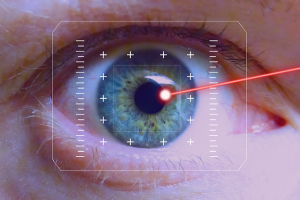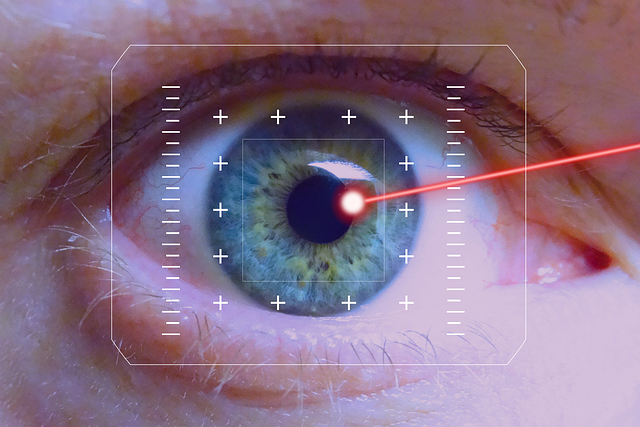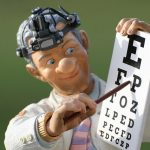Floaters are a common occurrence that can affect anyone’s eyesight. They are small specks or spots that appear in your field of vision and can be distracting or even alarming.
Maintaining clear eyesight is important for daily activities such as reading, driving, and working.
In this article, we will explore what floaters are, their causes, symptoms, and treatments, as well as home remedies and prevention tips.
What are Floaters?
 Floaters are small specks or spots that appear in your field of vision. They can be different shapes such as dots, circles, lines, or cobwebs. Floaters move around when you try to focus on them and can be more noticeable when looking at a bright background such as a blue sky or white wall. They are usually harmless but can be annoying or distracting.
Floaters are small specks or spots that appear in your field of vision. They can be different shapes such as dots, circles, lines, or cobwebs. Floaters move around when you try to focus on them and can be more noticeable when looking at a bright background such as a blue sky or white wall. They are usually harmless but can be annoying or distracting.
There are two types of floaters: vitreous floaters and retinal floaters. Vitreous floaters are caused by changes in the vitreous humor, a gel-like substance that fills the eye. As we age, the vitreous humor becomes more liquid and can pull away from the retina, causing floaters. Retinal floaters are caused by debris in the retina or blood vessels that cast a shadow on the retina.
Causes of Floaters
Floaters can be caused by age-related changes in the eye such as the liquefaction of the vitreous humor or posterior vitreous detachment (PVD). PVD occurs when the vitreous humor pulls away from the retina and causes floaters.
Eye injuries or surgeries can also cause floaters. If there is bleeding in the eye or damage to the retina, it can cause debris to form and create floaters.
Medical conditions such as diabetes or hypertension can also cause floaters. These conditions can damage blood vessels in the eye and cause bleeding or debris to form.
Genetics can also play a role in the development of floaters. If your family members have floaters, you may be more likely to develop them as well.
Symptoms of Floaters
The most common symptom of floaters is seeing spots or specks in your vision. These spots can be different shapes and sizes and can move around when you try to focus on them. You may also see flashes of light or experience blurred vision. Difficulty reading or focusing can also be a symptom of floaters.
If you experience sudden onset of floaters or flashes of light, it is important to seek medical attention immediately as it could be a sign of a retinal tear or detachment.
Diagnosing Floaters
An eye exam is the most common way to diagnose floaters. Your eye doctor will perform a visual acuity test to check your vision and a retinal examination to check for any damage or debris in the retina. An ultrasound or CT scan may also be used to get a better look at the inside of the eye.
Treatments for Floaters
In most cases, floaters do not require treatment and will eventually go away on their own. However, if they are causing significant vision problems, there are several treatment options available.
Vitrectomy surgery is a procedure where the vitreous humor is removed and replaced with a saline solution. This can remove any debris or floaters in the eye.
Laser therapy is another option where a laser is used to break up the floaters into smaller pieces that are less noticeable.
Medications such as steroids or anti-inflammatory drugs may also be prescribed to reduce inflammation and improve vision.
Observation and monitoring may also be recommended if the floaters are not causing significant vision problems.
Home Remedies for Floaters
There are several home remedies that may help reduce the appearance of floaters. Eye exercises such as focusing on an object and moving it closer and further away can help improve eye muscle strength. Eye massages can also help improve circulation in the eye and reduce floaters.
Dietary changes such as increasing your intake of antioxidants and omega-3 fatty acids may also help improve eye health. Hydration is also important for maintaining clear eyesight.
Prevention of Floaters
Regular eye exams are important for maintaining eye health and catching any problems early on. Protecting your eyes from injury by wearing protective eyewear during sports or work activities can also prevent floaters.
Managing medical conditions such as diabetes or hypertension can also reduce the risk of developing floaters. Maintaining a healthy lifestyle with a balanced diet, regular exercise, and not smoking can also improve overall eye health.
Floaters are a common occurrence that can affect anyone’s eyesight. While they are usually harmless, they can be annoying or distracting. Maintaining clear eyesight is important for daily activities such as reading, driving, and working. If you experience sudden onset of floaters or flashes of light, it is important to seek medical attention immediately as it could be a sign of a retinal tear or detachment. By following these tips and tricks for clearer eyesight, you can maintain healthy vision for years to come.









